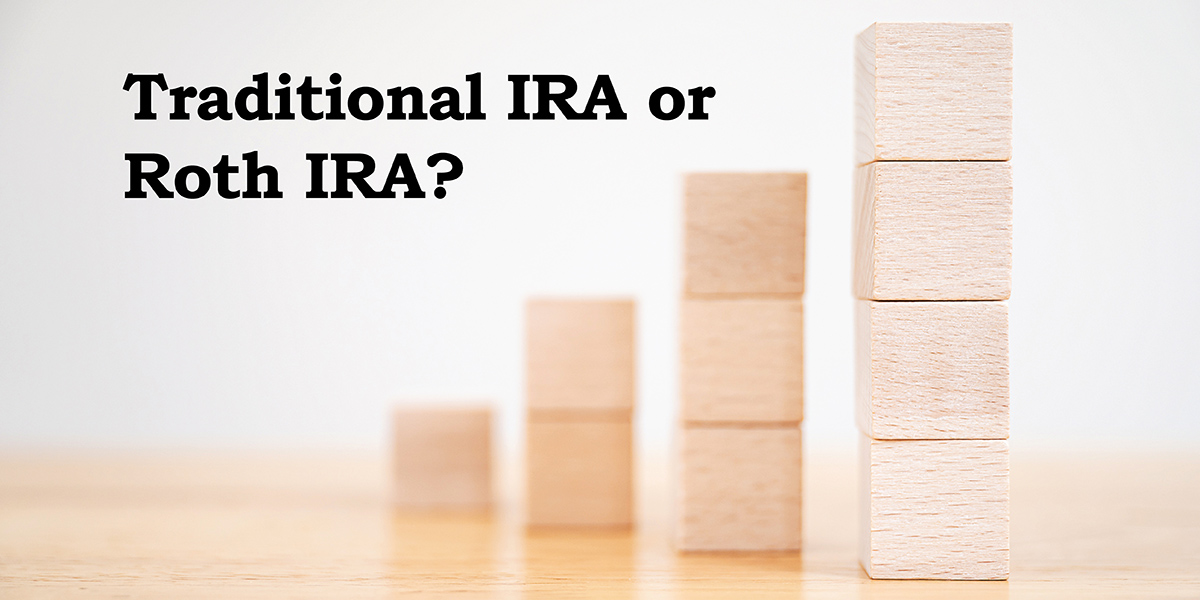
Should I Invest in a Traditional IRA or a Roth IRA?
August 8, 2023
There is no easy answer to this question. Traditional IRAs and Roth IRAs share certain general characteristics. Both feature tax-deferred growth of earnings and allow you to contribute up to $6,000 in 2022 (unchanged from 2021) of earned income, plus an additional $1,000 "catch-up" contribution if you're 50 or older. (This is the maximum you may contribute to all IRAs.) Both allow certain low and middle-income taxpayers to claim a partial tax credit for amounts contributed. But important differences exist between these two types of IRAs. In fact, the Roth IRA is in some ways the opposite of the traditional IRA.A traditional IRA allows anyone with earned income to contribute the maximum $6,000 in 2022, plus catch-up if eligible. However, your ability to deduct traditional IRA contributions will depend on your annual income, your filing status, and whether you or your spouse is covered by an employer-sponsored plan. You may be able to deduct all, a portion, or none of your contribution for a given year. Any distribution from a traditional IRA will be subject to income taxes to the extent that the distribution represents earnings and deductible contributions. You may also be hit with a 10% early withdrawal penalty if you draw money out before age 59½ (there are exceptions to this rule). Beginning at age 72, you must begin to take annual distributions from a traditional IRA.
You can also contribute to a Roth IRA, as long as you have taxable compensation. However, your ability to contribute and the amount you'll be able to contribute (up to the annual limit) will depend on your income and tax filing status. Although Roth IRA contributions are not tax deductible, Roth IRAs have other advantages. You're not required to take distributions from a Roth IRA at any age, which gives you more estate-planning options. Another key strength: Qualified withdrawals will avoid both income tax and the early withdrawal penalty if certain conditions are met. Nonqualified withdrawals will be taxed and penalized only on the
earnings portion of the withdrawal, since the principal is your own after-tax money.
Your personal goals and circumstances will determine which type of IRA is right for you. If you wish to potentially reduce taxes during retirement or help preserve assets for your heirs, a Roth IRA may be the way to go. A traditional IRA may make more sense if you can make deductible contributions and want to lower your taxes while you're still working.
The information presented here is not specific to any individual's personal circumstances. These materials are provided for general information and educational purposes based upon publicly available information from sources believed to be reliable—we cannot assure the accuracy or completeness of these materials. The information in these materials may change at any time and without notice.












